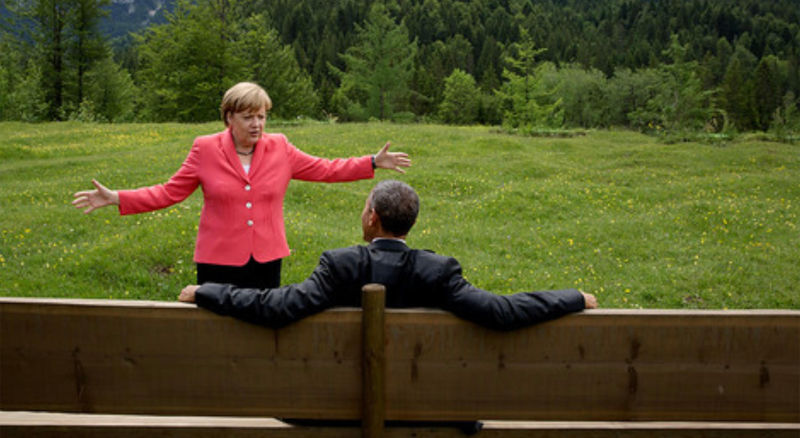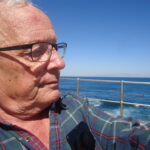Since her autobiography “Freedom. Memoirs 1954 – 2021” appeared on the world stage in late November last year, many reviews in the Western media were negative, and quite critical of Angela Merkel’s politics, especially the way she dealt with the refugee crisis. Long admired for her role as Germany’s first female Chancellor, and hailed as a leader of the free world, her departure from office was accompanied by disapproval – as often happens with political leaders.
Two months after the publication, as the critical dust has settled and the German people are bracing for an agonising election on 23 February 23, I like to take a closer look at her unique approach, and paint a more positive picture of Germany’s first female chancellor, before she vanishes into the fickle memory of history.
The “Memoirs”, which were written with the help of her close confidante Beate Baumann, provide a very detailed and comprehensive account of her life, from her childhood and youth in the GDR, to her astounding political career in the newly united Germany and on the world stage, right up to her retirement from politics in 2021. It was always guided by a pragmatic approach to things.
At a press conference in Dresden in 2015, dealing with the severe impact of the massive refugee influx, Merkel proclaimed: “We can do this, and if something stands in our way it has to be overcome, it has to be worked on.”
This most famous and often quoted statement, “wir schaffen das”, is usually translated as “we can do this”, but more precisely it means “we can manage or handle this”.
Merkel didn’t shy away from difficult problems and was determined to solve them. She was a pragmatic politician, always confident that you can fulfil the goals you set for yourself. What helped her was an impressive grasp of relevant issues, from matters of German unification to the Euro crisis, from climate and energy concerns to global political conflicts.
Endowed with a healthy ego, she didn’t want power over others, and didn’t aim for fame or fortune. As she repeatedly says, she really enjoyed making decisions and was keen to achieve something positive through them. Unlike many of her male colleagues, she didn’t need persuasive rhetoric to achieve what she wanted, but instead used her clear and orderly mind, trained through her work as a scientist and her experience as a housewife, to realise the goals she set for herself, and for German society.
In the prologue to the book she writes: “This is how I did politics, and this is how I live… With this attitude, everything is possible, because it isn’t only politics that contributes to it – every individual person has a part to play.” In this, she was a rare specimen in modern parliament.
She liked making decisions, and was happy that she was soon part of the new government in united Germany, rather than being stuck in opposition – where all you can do is disagree and attack the other side. That wasn’t her way. She didn’t see the opposition as enemies, in black and white, but preferred a shared and objective approach.
It must be said, of course, that while she was good at making decisions, not all her decisions were good. She found that out for herself in the latter stages of her career, and afterwards, something which the media have so far preferred to dwell upon – rather than recognising her undoubted political skills and achievements.
What repeatedly comes across in the book is that she loved being in politics. It actually made her happy – which is why she was always positive and optimistic. She was in it for the enjoyment of the job and the constant decision-making it required. In this she was helped by her Christian parents’ wisdom and support. She learnt from their open-minded approach how to make independent decisions while living in the GDR, where everything was under the control of the state, and helped her deal with the restrictions imposed by the system.
During her long reign, Merkel was clearly admired by many of her colleagues, for her clarity of mind, her confidence, and her positive approach, even if she was on the conservative side of the aisle. Her pragmatism was stronger than any party loyalty. This is a major reason why for 16 years the German voters accepted her leadership, until some of her tough actions led to strong opposition in the later stages of her reign. She recognised that, but it didn’t make her feel that her decisions, made under quite different circumstances, were completely wrong.
![Recording date: 27.10.1998 Angela Merkel gives a speech as environment minister in the Bundestag debate 'Stahlung bei Atomtransporten'. [automated translation] Contributor: Sueddeutsche Zeitung Photo / Alamy Stock Photo Image ID: 2FNF9TB](https://publish.pearlsandirritations.com/wp-content/uploads/2024/11/2FNF9TB.jpg)
In the Epilogue, Merkel explains what freedom means to her, which after all gave the title to the book. Again, she comes across not as a visionary or ideologue, but as a practical thinker:
“What does Freedom mean to me? That question has preoccupied me throughout my whole life, on both a personal and political level. Freedom – for me it means finding out where my own boundaries lie, and going to those boundaries. Freedom – for me it means not ceasing to learn, not having to stand still, but being able to go on, even after leaving politics. Freedom – for me it means being able to start a new chapter in my life.”
I believe that this is something worthwhile for anyone to take on board, as her enduring legacy. And while Merkel’s image as an important politician in German history will without doubt constantly change with the times, she will always have a positive place in my memory.
You can link to the book here:
Since his retirement from the University of NSW, where he taught courses in General Education, Jan Bruck has commuted between Sydney and Berlin.

